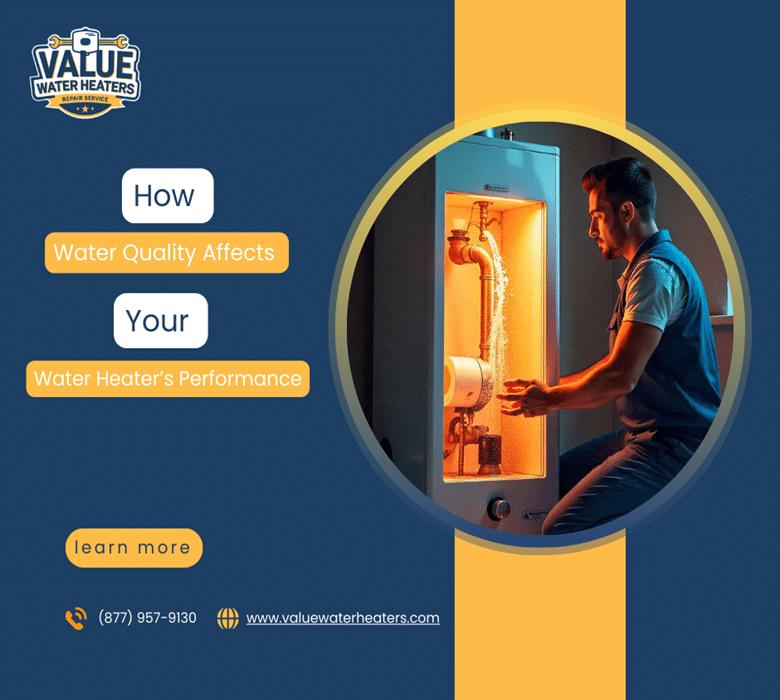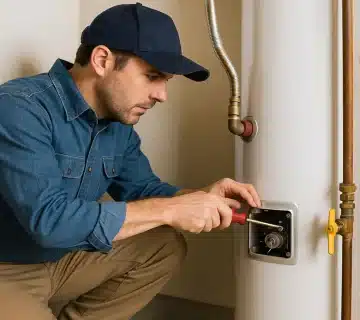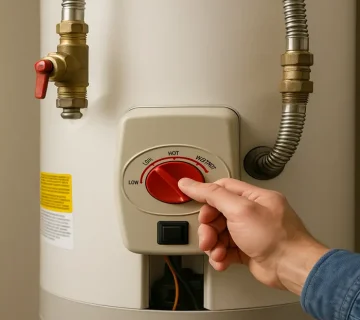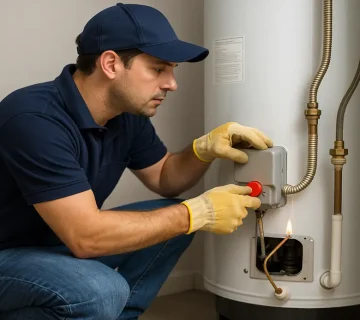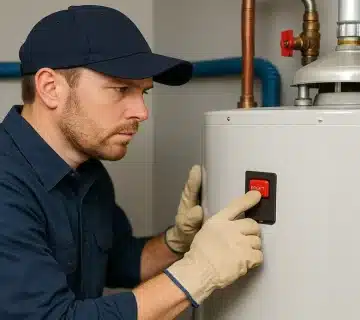Water quality and water heater performance are directly connected. The type of water flowing through your system affects its efficiency, lifespan, and maintenance needs. Issues like hard water, sediment buildup, and corrosive elements can cause serious damage, increasing energy costs and reducing your heater’s effectiveness.
In this guide, we’ll explore five critical ways water quality impacts water heater performance and how you can protect your system for long-term efficiency.
1. Hard Water Reduces Water Quality and Water Heater Performance
One of the biggest threats to water quality and water heater performance is hard water, which contains high levels of calcium and magnesium. These minerals create scale buildup, leading to:
- Reduced heating efficiency, as mineral layers act as insulation
- Increased energy consumption, forcing the system to work harder
- Shortened lifespan, due to excess strain on heating components
To maintain water quality and water heater performance, consider installing a water softener or flushing the tank regularly to prevent mineral buildup.
2. Sediment Buildup Affects Water Quality and Water Heater Performance
Over time, sediment accumulation in the tank negatively impacts water quality and water heater performance by:
- Reducing available hot water, as debris takes up space in the tank
- Blocking heating elements, decreasing overall efficiency
- Causing loud rumbling noises, as trapped air bubbles expand and burst
Annual flushing of the water heater helps remove built-up sediment, keeping your system in optimal condition.
3. Corrosive Water Weakens Water Quality and Water Heater Performance
If your water supply contains high chlorine, iron, or a low pH, it can accelerate corrosion inside the tank. This significantly affects water quality and water heater performance by:
- Causing rust formation, weakening the tank structure
- Altering water quality, leading to metallic-tasting water
- Damaging the anode rod, reducing protection against rust
Regularly checking and replacing the anode rod helps prevent internal rust and corrosion, preserving water quality and water heater performance.
4. High Mineral Content Clogs Pipes and Lowers Water Quality and Water Heater Performance
Hard water doesn’t just impact the heater—it also affects pipes, valves, and overall system performance. Over time, mineral deposits can:
- Restrict water flow, lowering pressure
- Create temperature fluctuations, as clogged components disrupt heating
- Increase the need for repairs, due to excess scaling
Installing a filtration system or using descaling solutions can protect your heater and plumbing from excessive mineral buildup, ensuring better water quality and water heater performance.
5. Poor Water Quality Shortens Water Heater Lifespan
A direct consequence of poor water quality is a shorter system lifespan. Without proper care, water quality and water heater performance will deteriorate quickly due to:
- Scaling and overheating, stressing heating elements
- Frequent temperature fluctuations, causing unnecessary wear
- Corrosion and leaks, leading to expensive repairs
By improving water quality and water heater performance, you can extend the life of your unit while maintaining energy efficiency.
How to Improve Them
To protect water quality and water heater performance, follow these expert maintenance tips:
- Flush your water heater yearly to remove sediment buildup
- Install a water softener to prevent excessive scaling
- Replace the anode rod regularly to slow down corrosion
- Use a water filtration system to eliminate harmful contaminants
- Schedule professional maintenance to identify potential issues early
Implementing these steps will significantly improve water quality and water heater performance, ensuring your system runs smoothly for years.
Final Thoughts
The connection between them is too important to ignore. Poor water conditions contribute to higher energy bills, frequent breakdowns, and costly replacements.
By taking simple precautions—such as flushing the tank, treating hard water, and monitoring corrosion—you can extend your heater’s lifespan, improve efficiency, and reduce repair costs.
For expert water heater maintenance and installation, visit our website. You can also find us on Google Maps, Bing Maps, Yahoo Local, or check customer reviews on Yelp.

